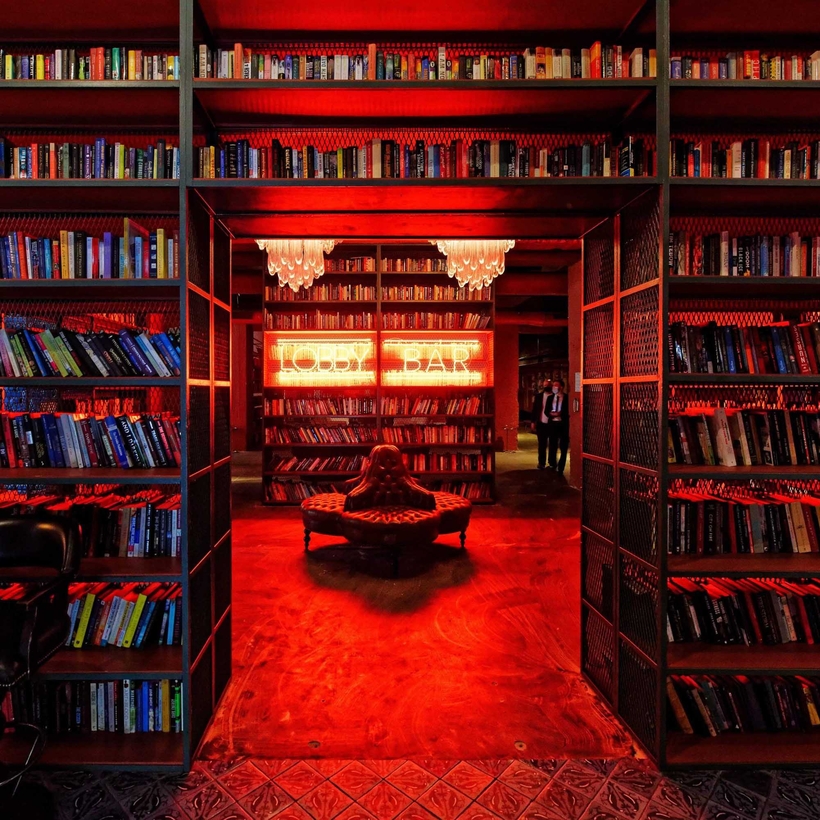Opened in 2018, Stamba Hotel didn’t take long to achieve icon status in Tbilisi, Georgia. Extracted from the ribs of a 1960s modernist printing house and office, the hotel knits together Soviet industrial and Russian Revival architecture with hints of Frank Lloyd Wright and a Wes Anderson attitude.
But while many luxury hotels try to keep the locals out, Stamba, owned by the Georgian hotel chain Adjara Group, has made a business out of drawing them to the hotel’s co–working space D-Block, to take selfies with resident lobby dog Kimchee or to grab a bottle of wine and drink it in the jasmine-twined courtyard.

